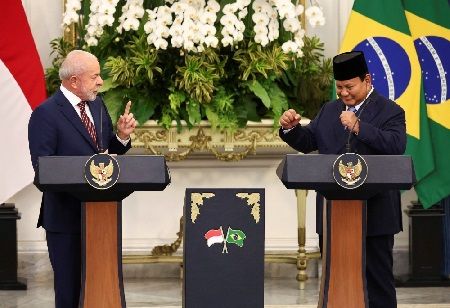Indonesia is set to make English a compulsory subject for primary school students beginning in 2027, as part of a sweeping education reform aimed at improving language proficiency and fostering stronger international engagement. The initiative, announced by the Ministry of Primary and Secondary Education, forms a core component of the government’s broader effort to align the national education system with global standards and equip young learners with skills essential for the modern world.
Under the new regulation, English instruction will commence from Year 3 of elementary school starting in the 2027 academic year, in accordance with the 2025 education policy framework. Education Minister Abdul Mu’ti described the decision as a major milestone in elevating the quality of Indonesia’s basic education. He affirmed that ensuring the availability of qualified English teachers across the country would be the government’s immediate priority. “Since 2027, English will be a mandatory subject”, he said, emphasizing that the ministry is already working on training and recruitment programs to address the anticipated demand for skilled instructors.
In a parallel initiative that reflects Indonesia’s growing diplomatic and cultural outreach, the government has also announced that Portuguese will be introduced as a priority subject in the national curriculum. The move, officials say, is part of an effort to strengthen ties with Brazil and promote cross-cultural understanding between the two nations. President Prabowo Subianto made the announcement during a meeting with Brazilian President Luiz Inacio Lula da Silva at the Merdeka Palace last week, highlighting the importance of linguistic exchange in bilateral relations. “As a gesture of how much we appreciate Brazil, Portuguese will be one of the priority languages taught in Indonesia’s education curriculum”, Prabowo stated.
Also Read: Uzbek Teachers Highlight Growing Interest in English and Other Foreign Languages
The Ministry of Higher Education, Science, and Technology, together with the Ministry of Primary and Secondary Education, has already begun developing Portuguese study materials tailored for Indonesian learners. This inter-ministerial collaboration seeks to ensure that the language instruction is pedagogically sound and culturally relevant, laying the groundwork for long-term academic and diplomatic benefits.
Observers view these reforms as a significant shift in Indonesia’s educational orientation one that underscores the government’s ambition to produce globally competent citizens. With English serving as a gateway to international communication and Portuguese symbolizing Indonesia’s commitment to fostering South-South cooperation, the dual-language initiative represents both a practical and strategic advancement in national education policy. If successfully implemented, the 2027 reforms could redefine Indonesia’s linguistic landscape and position its younger generation for greater participation on the global stage.

